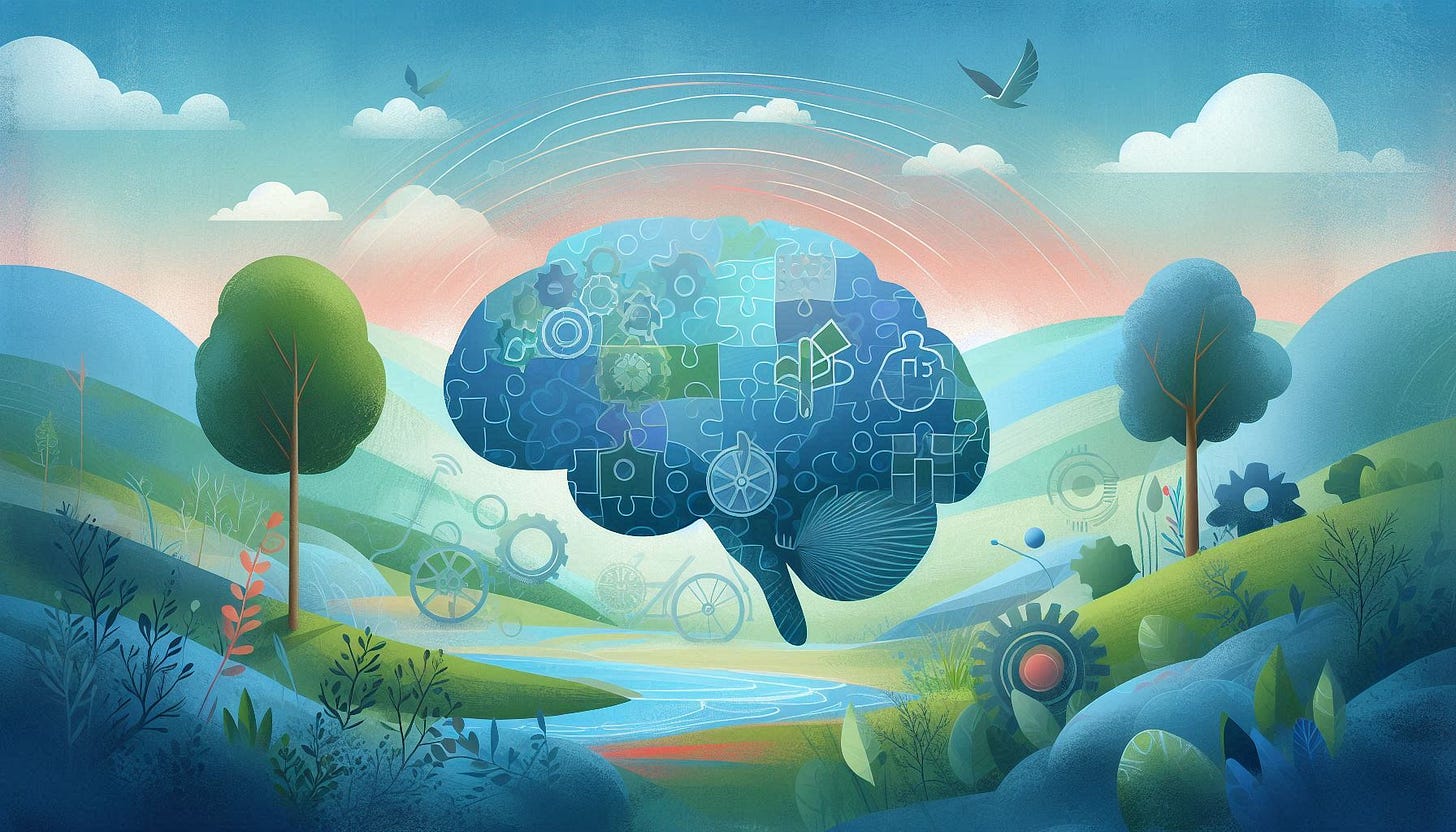This is probably one of the most important blogs that I have published. Everyone knows that mental health is important, but what is mental health is a question people are still debating.
The WHO has one definition, the American CDC has another, but one thing they all agree on is that it is important, and problems with mental health are a serious issue all over the world. In India alone, there are close to 200 million people suffering from some mental health issue—that is one in seven.
So, what is mental health, and what can you do to improve yours? That is what we're going to talk about in today's blog.
Two Aspects of Health - Functionality and Adaptability
I'm going to explain this to you in the simplest way I can. There are two aspects to health.
Functionality:
Are you able to function in the way that you think you should? Are you able to do everything that you want to do? If yes, your functionality is okay.
Adaptability
The other aspect is adaptability: When something changes in your environment, when something happens to you, are you able to adapt and move on with your life, or does that change stop you or push you back?
If you're able to move on and keep growing, then you are adaptable, and that is also a sign of good health.
Two important points to mention here are that adaptability and functionality are different for different people.
For example, what is ideal functionality for Virat Kohli may not be the same for Vishwanathan Anand, and it will be very different for Aamir Khan. Different people expect different things from their body and mind, so ideal functionality will be different.
And the other thing is, everyone has an upper limit of adaptability, meaning we can all tolerate some amount of stress, but how much stress is dependent on each one of us. After a certain amount of stress, everyone will break.
Let me give you a silly example of a chair: If I sit on a chair and the chair is fine, we’ll say the chair is healthy. But what if I sit on the chair and two more friends also climb on the chair? Now, whether the chair will break is a sign of how healthy or strong that chair is. But imagine if an elephant comes and sits on the chair—it will break, because that chair was not designed to take the stress of an elephant. In other words, if I was planning to put an elephant on that chair, I should have worked on that chair before. I should have reinforced it with steel and titanium. I should have run some tests to check if the chair can bear that weight.
Health is exactly similar. Mental health is not absolute, which means no one is 100% unbreakable. But the point is, how do you get more healthy, more resilient, and more adaptable to a changing environment? That is the main question.
Now that you've understood health from the perspective of functionality and adaptability, let's talk about levels of health.
Levels of health
Life is going on, and something happens—there is an obstacle in front of you. Now, there are four things that can happen, and I describe these four things as minus 1, zero, plus 1, and beyond.
Minus 1: When the obstacle not only stops you but pushes you back.
Level zero: When the obstacle stops you, but you remain where you are.
Plus 1: When you are able to maneuver your way and continue living your life even if the obstacle is there.
Beyond: When you are able to use that obstacle to gain even more speed.
This is how I think about levels of adaptability when it comes to health. How you react to that obstacle is a sign of how healthy you are.
If you've seen the movie Kung Fu Panda, I think Po is a great example. At the start of the movie, he considers his tummy an obstacle and is slowed down—even stopped—because of how fat he is. As the movie continues, he adapts to it and is able to do all his Kung Fu exercises despite his tummy. By the end of the movie, he actually uses his tummy to his advantage. Similarly, his opponent, Tai Lung, uses a feather to escape from his unbreakable prison. These are great examples of how resilience can help you use obstacles to get ahead in life. For me, that is a sign of mental health.
Remember that these levels of health apply not only to mental but also to physical health. How strong your bone is will decide if your bone will fracture if you have a fall. But at the same time, if you go to the gym and work out, your bones will be so strong that maybe a fall that could have broken somebody else's bone might not break yours. So, this is important to understand.
Now that you've understood what health is and what the levels of health are, in the next blog we will cover what steps you can take to improve your mental health.
Cheers
Sid.
PS: If you are looking to learn more about Neuroscience: https://sidwarrier.com/courses








If anyone needs free therapy - samvadngo.com visit website to get appointment
This was really helpful. I am stuck in same situation from last 2 plus years. Each time I try to get out something happens and I am still there. I need to made up my mind that its over and need to move on. Your youtube videos were really helpful when I was in depression, I get to know why I behaved the way I did. But the problem is now I am aware that is the issue but not taking any action. I beleive I need a strong and clear mind.